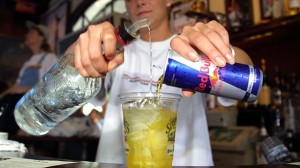Albeit the availability of numerous programs that effectively treat alcohol dependencies, less than 25 percent of people who need help with alcoholism actually seek treatment. Individuals who often perceive a greater negative stigma surrounding substance abuse and dependencies avoid seeking treatment in fear of it confirming their inclusion into a stigmatized group. A study conducted by Columbia University found that of the people diagnosed with alcoholism, more than 60% said they would avoid seeking help if they believed they would be stigmatized if people knew. (ScienceDaily)
The study surveyed 34,653 members of the general population (6,309 had been been diagnosed with an alcohol-related disorder). The findings included that individuals diagnosed with an alcohol-related dependency- who perceived a negative stigma surrounding substance abuse – were 0.37 times less likely to seek treatment than those with similar alcohol-related dependencies who did not perceive a negative stigma surrounding substance abuse. (Medical News Today)
Mike Sanders, founder of ExecuCare ARC, said that as a business professional he was affected by the perceived negative stigma prior to entering recovery for alcohol and prescription drug dependencies. As the owner of a company, he was attracted to the 10-day Neurotransmitter Restoration (NTR) because it was conducive to his circumstances. It was discreet, minimal withdrawal symptoms, eliminated cravings, restored clarity of mind, but most importantly, it broke the cycle of dependency and allowed him an entry point into the recovery process. “I can relate to negative stigma increasing the barrier of that entrance point,” he said. Sanders opened ExecuCare in hopes of offering individuals the same opportunity NTR brought him.
In the study, other findings in the general population were: younger individuals perceived a less negative stigma surrounding substance abuse, but were less likely to seek treatment. Men perceived a more negative stigma than women but not by much (38.1% to 37.7%). The study also found that a perceived negative stigma towards alcohol dependency and necessary treatment was higher for those with lower personal income, lower education, and those previously married vs. those who had never been married. The study also showed that individuals with more chronic alcohol dependencies were more likely to seek treatment. (Medical News Today)
This is one of the few studies that focuses on the negative stigma surrounding alcohol dependencies and its relationship to underutilized treatment services. The researchers, who published the study’s findings in the November 2010 issue of the American Journal of Epidemiology, hope that it will encourage more effort in reducing the stigma surrounding alcohol-related dependencies, substance abuse, and necessary treatments.



